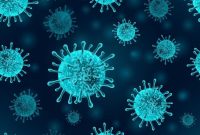The Role of Insurance in Disaster Preparedness and Recovery: Lessons Learned from Recent Events
Picture this: a calm neighborhood suddenly engulfed in raging floodwaters, or a bustling city skyline obscured by dark clouds of smoke from a wildfire. Natural disasters can strike at any moment, leaving devastation in their wake. In times of chaos and uncertainty, insurance plays a crucial role in helping communities prepare for and recover from such catastrophic events. Join us as we delve into the vital role of insurance in disaster preparedness and recovery, drawing valuable lessons from recent events to better equip ourselves for the future.
Disaster Preparedness and Risk Assessment: Examining the Importance of Insurance in Assessing and Mitigating Risks Before Natural Disasters Occur
Before disaster strikes, it is essential to assess and understand the risks that a community or individual may face. Insurance plays a critical role in this process by providing insights into potential vulnerabilities and offering solutions to mitigate them effectively.
By evaluating factors such as location, susceptibility to specific hazards, and building structures, insurance companies can help individuals and businesses make informed decisions on how best to protect themselves against natural disasters.
Through risk assessment tools and expertise, insurers can guide policyholders in implementing preventive measures like fortifying buildings, securing valuables, or creating evacuation plans. These proactive steps not only reduce potential damages but also save lives during emergencies.
In essence, the partnership between insurance providers and policyholders in assessing risks before disasters occur is key to enhancing overall preparedness levels and minimizing the impact of unforeseen events.
Post-Disaster Recovery and Insurance Claims: Analyzing the Role of Insurance in Facilitating Recovery Efforts and Providing Financial Support to Affected Communities
When a natural disaster strikes, the aftermath can be overwhelming. Homes destroyed, businesses damaged, and lives upended in an instant. This is where insurance plays a crucial role in helping communities recover.
Insurance claims provide financial support to those affected, enabling them to rebuild and move forward. Whether it’s covering property damage or compensating for lost income, insurance eases the burden during challenging times.
Facilitating recovery efforts, insurance companies work hand in hand with policyholders to expedite the claims process and get funds into the hands of those in need swiftly.
By analyzing past events and understanding how insurance has helped communities bounce back from disasters, we can better prepare for future uncertainties. Strengthening insurance mechanisms and improving response strategies will ensure that we are more resilient when facing unforeseen challenges ahead.
Resilience Building and Future Planning: Learning From Recent Disasters to Strengthen Insurance Mechanisms and Improve Preparedness for Future Events
As we reflect on the lessons learned from recent disasters, it becomes clear that insurance plays a crucial role in disaster preparedness and recovery. By assessing risks beforehand, facilitating post-disaster recovery efforts, and strengthening resilience for future events, insurance mechanisms can provide vital financial support to affected communities. It is essential for us to continue learning from past experiences and work towards improving our preparedness strategies to build more resilient societies. Let’s strive to enhance our insurance practices and ensure that we are better equipped to face whatever challenges may come our way in the future.



